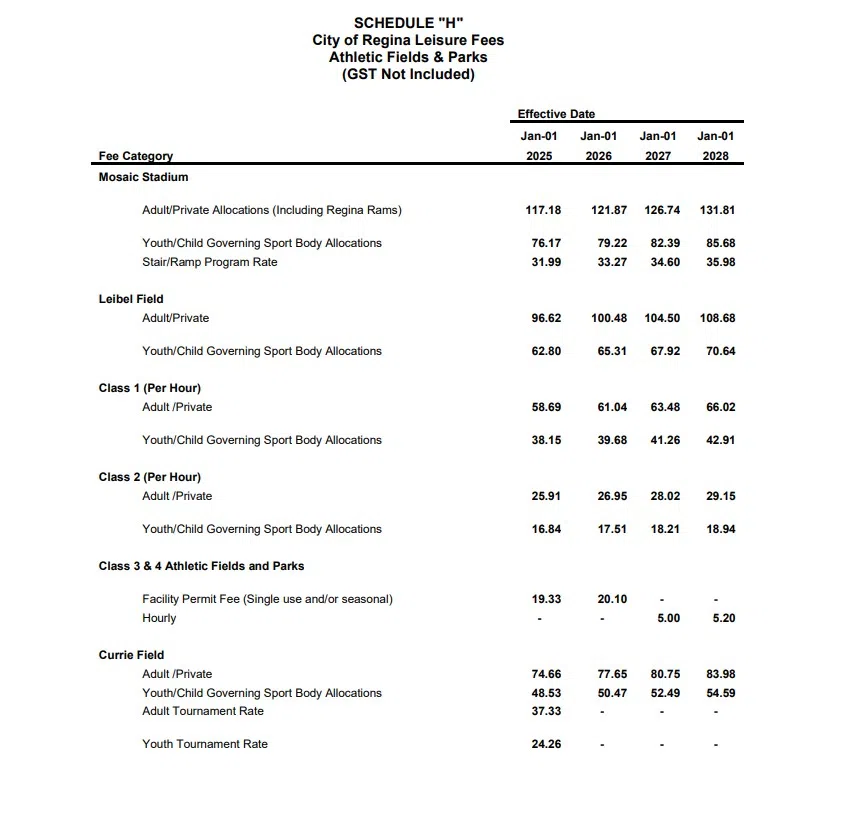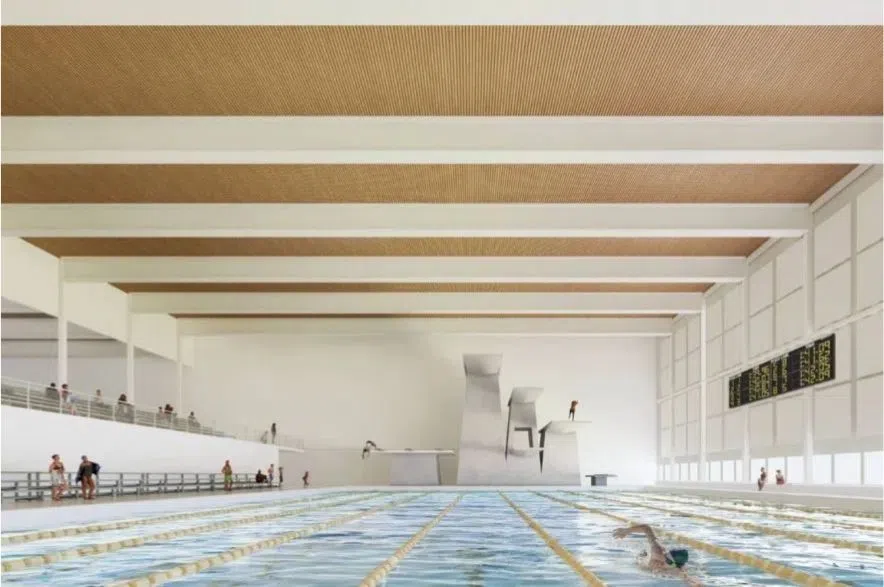Regina city council is raising leisure rates, including introducing a 50 per cent surcharge for people who don’t live in the city registering for programs like swimming or art lessons.
The extra charge is set to kick in 2026.
Read more:
- Regina mayor, administration consider early budget talks a success
- Province disputes direction to move Moose Jaw emergency shelter
- Regina police shot and killed 22-year-old man during domestic violence investigation: SIRT
At its meeting on Thursday night, Regina city council unanimously approved its leisure bylaw update for 2026-2028. The City of Regina updates its leisure bylaws every three years.
Regina residents can also expect to pay higher prices, as leisure costs in general are expected to increase by four per cent annually from 2026 until 2028.
Leisure fees are based on cost-recovery pricing, and the new changes are expected to bring in $2.2 million in new revenue over the three-year term.
“It goes back to the ability to maintain the facilities, and there’s a cost to that,” said Mayor Chad Bachynski after the meeting.
“We need to make sure we have a model that accurately accounts for the cost to maintain our fields or facilities, to make sure they’re ready for use for all our residents that need them.”
Administration said the city will also use cameras as part of a pilot project to track the usage of fields and parks.
Community organizations concerned about general fee increases
Council approved the introduction of a new hourly rental fee for athletic fields and parks. The $5 rental rate fee, which will be implemented in 2027, has some community organizations raising some concerns.
Len Antonini, executive director of Regina Minor Football, said the additional costs will have a huge impact on the organization, which will have to pass those costs on to the families of players.
Antonini said it would likely cost families an extra $10.
“We are probably the largest user of these fields, as tackle football is a practice sport,” Antonini said during the meeting.
“We usually have around 40 teams, and use over 30 fields two to three or four times per week. Our costs will go from around $600 a year to over $10,000 per year.”
Antonini said Regina Minor Football tries to keep costs low for families, and raises between $200,000 and $300,000 per year to keep up with costs while also paying for the rejuvenation of Leibel Field.

Regina will increase the cost of its athletic fields and parks facility permit fee in 2026. The city will also introduce a $5 hourly rate to use those facilities in 2027. (City of Regina/Screenshot)
Kyle Kendel, vice president of the Regina East Zone Youth Soccer Association, also expressed concerns about the additional costs onto the community organization – saying it receives no money from partner groups like the Saskatchewan Soccer Association or the provincial government.
“The proposed fees for tier three and four fields may seem low to some, but 100 per cent of those fees will pass on to the registered players,” Kendel said.
“Our estimate is that the change will be at least $3 to $4 per player per season. And many registered players are new residents to Regina or come from low-income households, and every dollar counts. Many families have multiple (children) playing, thus compounding those costs.”
Kendel said he would be in favour of dealing with the higher costs if it meant that the money would go toward maintaining the fields that the association uses.
Members of city administration said the city will pilot some cameras to track the rental usage of some fields and parks and that the permit fees will raise about $80,000 in 2027 and 2028.
They also stated that the city wasn’t looking to add the fees in 2026 because it intended to continue to work with affected groups like Regina Minor Football and East Zone to properly understand the implications of the changes.
“Ultimately, administration had done a lot of work to look at what kind of models were out there and do a bit of a scan,” Mayor Bachynski told reporters.
“The delegates have concerns. It’s a change to the model they’re used to, but ultimately we’re trying to make sure we set ourselves up to be able to track the usage of these facilities and afford to maintain the facilities as well.”
Connie Buchan is the chair of the Regent Park Community Association. She said city administration did not consult with the association before moving forward with the bylaw changes, straining its partnership with the city.
Buchan said community associations are an extension of the city’s employee base and provide services that formerly was done by the city itself.
“There were programs that happened throughout the city 12 months of the year, and that was all put on all by the city,” Buchan said.
“People cleared the ice rinks, and those were city employees. Any festivals and things that went on in the city was put on by city employees. And now community associations do all of those things for a $10,000 grant, and it’s all volunteer hours on our part.
“So really we see ourselves as a volunteer workforce for the city.”











